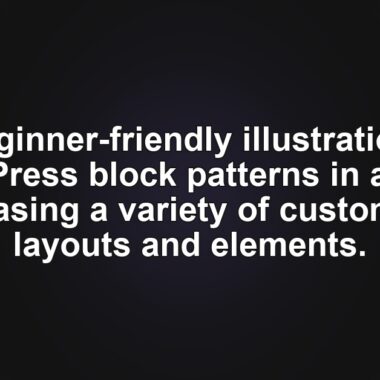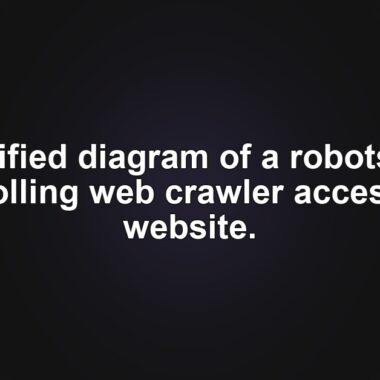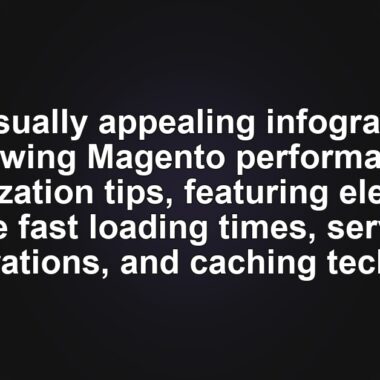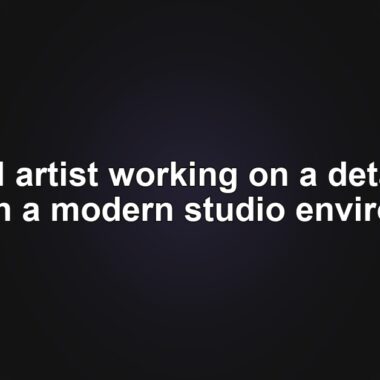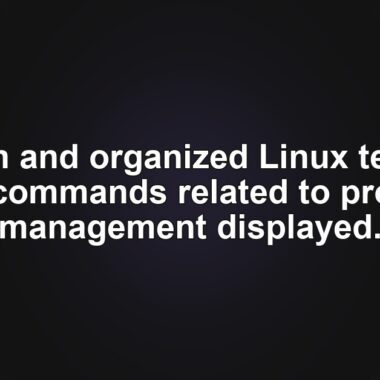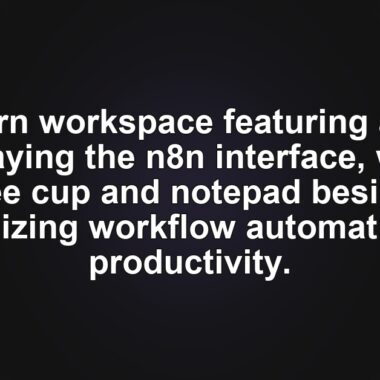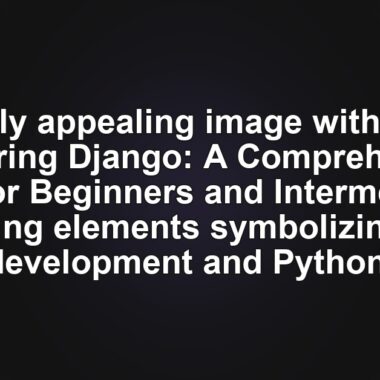How to Start a Podcast: A Beginner’s Guide to Podcasting Success
Podcasting is an exciting way to share your voice and connect with a global audience. Learn how to start a podcast and make money from it with this guide.
Introduction
Whether you’re looking to share your expertise, tell compelling stories, or build a community around a specific topic, podcasting offers a unique platform to connect with a global audience. This comprehensive guide will walk you through the essential steps to start a podcast from scratch and make money. You’ll learn how to choose a niche that resonates with your audience, select the right format and equipment, and discover effective monetization strategies.
How to Start a Podcast
1. Choose Your Product Niche and Target Audience
Get started by choosing a niche for your new podcast. A niche forms the basis of your podcast episodes, distinguishing your show from others. To find your niche, ask yourself these questions:
- What are you passionate about? Is there a topic or subject matter that you could talk about for hours?
- What expertise do you have? Do you have professional or personal experience that others might find valuable?
- What stories do you want to tell? Do you have unique experiences or perspectives that you want to share?
- Who is already talking about this topic? Are there other podcasts in this niche, and how can you differentiate yours?
- Who is your ideal listener? Are they professionals in a specific industry, hobbyists, or a general audience looking for entertainment?
- What problems can you solve for your audience? Are there questions you can answer or insights you can provide?
- How specific is your niche? Is it broad like “personal finance” or more specific like “personal finance for college students”?
- How can you monetize your topic? Does your niche and target audience align with potential sponsorship opportunities or other monetization strategies?
Clearly defining your niche and target audience will aid in creating your podcast name, shaping your content, and planning the next steps.
2. Select a Podcast Format
The next step is to choose a format for your podcast. This will set the tone and structure for your episodes. Knowing your format before you record your podcast will help you plan your episodes more effectively and ensure you’re meeting the needs of the people who listen to your show.
- Solo podcast: You are the sole host discussing topics or sharing stories. Great for personal development podcasts and personal journals.
- Interview podcast: Involves the host interviewing guests. Ideal for business, educational, or inspirational podcasts.
- Panel podcast: Multiple hosts or guests discuss a topic. Used for news commentary, debates, or entertainment shows.
- Storytelling podcast: Scripted, involves voice actors, sound effects, and a narrative arc. Suitable for drama, horror, or science fiction genres.
- Educational podcast: Aims to educate the listener on a specific topic. Can be solo or interview format, often includes experts in the field.
- News recap: Provides a summary of the latest news in a specific industry or topic area. Usually short and published frequently.
- Hybrid: Combines elements of different formats.
3. Plan Your Content and Episodes
With a niche and format ready, it’s time to plan the episodes of your podcast. Organize your episode topics, create outlines, and decide on the episode length. A content calendar can help at this stage.
- Consider using a Trello board to plan your content. If your podcast niche is digital marketing trends, your episode topics can be “SEO in 2023,” “Social Media Algorithms,” and “The Future of AI in Digital Marketing.” For consistency, you can release new episodes every Thursday.
- Use AI to brainstorm content ideas: Leverage AI tools like OpenAI’s ChatGPT-4 to come up with fresh podcast topics.
- Do market research: Conduct surveys, social media polls, or one-on-one interviews with potential listeners to validate your podcast idea.
- Choose the correct media format: Consider your audience’s preferences and your production capabilities when choosing between audio-only or video podcasts.
- CTAs and engagement: Incorporate calls to action (CTAs) in your episodes to engage your audience and drive specific actions.
- Season planning: Organize your podcast into seasons for thematic grouping and production breaks.
- Content repurposing: Extend your content’s reach by turning key takeaways or episode highlights into social media clips, infographics, or blog posts.
4. Select the Right Podcasting Tools and Software
Choosing the right software is crucial for recording and editing your episodes. Quality audio is non-negotiable in podcasting. For this, you’ll need the right podcast recording equipment. Invest in a quality microphone, headphones, and an audio interface.
Recording and Editing Software Recommendations
- Riverside: Supports up to 4K video resolution and 48kHz audio. Excellent for those who want to include video content.
- Audacity: Free, open-source platform with basic recording and editing features. Great for beginners.
- Adobe Audition: Advanced editing tools, ideal for those with audio editing experience.
- Hindenburg: Good for interview formats, with a fair selection of editing features.
- RINGR: Perfect for capturing high-quality audio from guests worldwide.
- Auphonic: AI-automated editing software, a time-saver for quick episode production.
- Zencastr: Known for local recording capabilities but can be expensive.
- Reaper: Affordable with extensive features for a one-time fee.
Essential Podcasting Equipment
- Podcast microphones: Shure SM7B, Audio-Technica ATR2100x, Yeti.
- Audio interfaces: Focusrite Scarlett 2i2, PreSonus AudioBox USB 96.
- Headphones: Sony MDR7506, Audio-Technica ATH-M50x.
- Portable recorders: Zoom H5, Tascam DR-40X.
- Additional tools: Boom arms, Pop filters, Acoustic panels.
Don’t overlook the importance of having a reliable backup and storage system for your podcast files.
5. Set Up Your Recording Environment
When learning how to start a podcast, the quality of your recording setup is just as crucial as the equipment you choose. The environment, be it a home studio or a professional space, can significantly impact the quality of your podcast episodes.
Home Studio vs. Professional Studio
A home studio offers the convenience of recording anytime but may require soundproofing and specialized equipment to ensure top-quality audio. On the other hand, a rented professional studio often comes fully equipped but can be costly and less flexible regarding scheduling.
Room Acoustics
Pay attention to the acoustics of your recording space. Incorporate soft materials like carpets, curtains, and acoustic panels to dampen sound and reduce echoes.
Lighting and Camera Setup (for Video Podcasts)
If you plan to record video podcasts, ensure you have a balance of natural and artificial light sources. Invest in a high-definition or 4K camera for best video quality.
Ergonomics
Comfort is essential in your recording setup. Ensure your chair offers adequate lumbar support, and your microphone is at mouth level.
6. Record and Edit Your Episodes
Recording your first episode can feel nerve-wracking, but remember that practice makes perfect. Before you start, understand the legalities involved in podcasting, including copyright laws and obtaining permission for third-party material.
Scripting vs. Improvisation
Choose between scripting your episodes for structure or improvising for a natural flow. Select the approach that best suits your podcast format and audience expectations.
Batch Recording
Batch recording multiple episodes in one session can be time-saving and helps maintain a consistent publishing schedule.
Guest Management
Efficient guest management includes inviting guests who align with your podcast’s theme and preparing questions in advance.
Post-Production Editing
Post-production involves editing the audio to remove errors, enhance quality, and add effects or background music if it fits your podcast’s style.
7. Choose a Reliable Podcast Host
Podcast hosting refers to a service specifically designed to store and distribute podcast audio files. Select a reliable podcast hosting service that offers easy RSS feed generation and in-depth analytics.
8. Create a Podcast Website
A podcast site serves as the central hub for your podcasting activities. Use Hostinger to create a professional website with embedded media players, detailed podcast descriptions, and episode show notes.
9. Publish Your Podcast
After recording and editing, upload your audio files to a podcast hosting platform and distribute them to podcast directories via an RSS feed. Optimize your podcast for SEO to increase discoverability.
10. Promote Your Podcast
Consistency in your podcast promotion strategies is key to building and maintaining a successful podcast. Use social media, email marketing, and collaborations to promote your episodes.
11. Monetize Your Podcast
Monetizing your podcast can include sponsorships, affiliate marketing, and merchandise sales. Focus on creating high-quality content to grow your audience before diving into monetization.
Benefits of Starting a Podcast
- Audience building: Podcasts allow you to connect with listeners who share your interests or need your expertise.
- Expertise sharing: Establish yourself as an authority in your field.
- Networking opportunities: Open doors to networking with industry leaders and professionals.
- Monetization potential: Various monetization methods become viable with a substantial listener base.
- Low barrier to entry: Start easily with basic podcast equipment and recording software.
- Creative outlet: Express yourself creatively through storytelling, interviews, or educational content.
- Global reach: Share your message or expertise worldwide.
- Skill development: Develop various skills, including public speaking, audio editing, and marketing.
Discover more about creating your online presence by exploring these articles:
- How to Design a Website
- How to Create a WordPress Podcast Website
- Best WordPress Podcast Themes
- Best WordPress Podcast Plugins
Conclusion
Starting your podcast helps you share your expertise, build a loyal community, and generate additional income. From choosing your niche and selecting the right format to recording, editing, and finally publishing and monetizing your episodes, each step is crucial to the success of your podcasting journey. The benefits of podcasting are numerous, including the ability to reach a global audience, the low entry cost compared to other media, and the personal connection you can build with your listeners. Don’t overlook the importance of having a dedicated podcast website. Your own website can serve as a central hub for your content and offers additional avenues for monetization and audience engagement.
How to Start a Podcast FAQ
How much does it cost to start a podcast?
The initial expenses are mainly for podcast recording equipment and a podcast host. Depending on your chosen equipment quality, your initial investment can range from $100 to $300.
Do you need a license for a podcast?
You don’t need a special license to start a podcast. However, if you plan to include copyrighted music or other intellectual property, you should obtain the necessary permissions or licenses.
How do you get paid for a podcast?
Ways to monetize your podcast include sponsorships, affiliate marketing, and merchandise sales. The key to successful monetization is a large and engaged audience, which comes from consistently delivering good-quality content.
Can I host my podcast on my website, or should I use a podcast hosting service?
While you can host your podcast episodes on your own website, using a specialized podcast hosting platform is more efficient. These platforms offer features like analytics, easy RSS feed generation, and seamless distribution to podcast directories, making your podcasting journey much smoother.
How to start a podcast with no audience?
Starting a podcast with no audience requires focusing on a unique niche and producing valuable content. Engage on relevant social media platforms and collaborate with established podcasters to gain initial exposure.
Starter-Pack HTML Section
Feb 17, 2025
Matleena S.
16min Read
👉 Start your website with Hostinger – get fast, secure hosting here 👈
🔗 Read more from MinimaDesk:
- How to Disable xmlrpc.php in WordPress: A Step-by-Step Guide
- Mastering the WP-Content Directory in WordPress
- The Ultimate Guide to WP-Content: Access, Upload, and Hide Your WordPress Directory
- How Many WordPress Plugins Are Too Many? Optimize Your Site for Success
🎁 Download free premium WordPress tools from our Starter Tools page.


